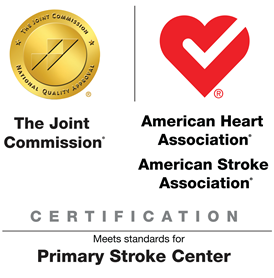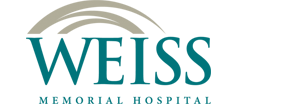Stroke Rehabilitation
Stroke Rehabilitation: Taking Your Life Back
 With about 795,000 Americans suffering strokes each year, there is a good chance that you or someone you know has been (or will be) affected by this disease. On average, someone in the United States suffers a stroke every 40 seconds. Every three to four minutes, someone dies of one.
With about 795,000 Americans suffering strokes each year, there is a good chance that you or someone you know has been (or will be) affected by this disease. On average, someone in the United States suffers a stroke every 40 seconds. Every three to four minutes, someone dies of one.
While stroke is the fifth leading cause of death in this country, the death rate from stroke has fallen 35% over the last 10 years. However, stroke survivors often suffer permanent physical or mental disabilities that require rehabilitation.
Some of the disabilities that result from strokes include:
- Paralysis or problems controlling movement
- Sensory disturbances including pain
- Problems using or understanding language
- Problems with thinking and memory
- Emotional disturbances
There is no cure for the disabilities left by a stroke. The goal of stroke rehabilitation is to help survivors relearn the skills that they lost following the stroke and teach them new ways of performing tasks to circumvent or compensate for the skills that they have lost. The hope is that stroke survivors may be as independent and productive as possible following their rehabilitation.
Rehabilitation Therapies
There are several different types of rehabilitation therapies, including:
- Physical therapy to restore movement, balance and coordination
- Occupational therapy to relearn basic skills such as bathing and dressing
- Speech therapy
Rehabilitation experts agree that an important element in any rehabilitation program is carefully directed, well-focused, repetitive practice. This is the same type of practice used by most people trying to learn a new skill such as playing the piano or pitching a baseball.
Stroke rehabilitation often begins within the first 24 to 48 hours after the stroke when nurses and other medical personnel work to prevent problems such as stiff joints, falls, bedsores and pneumonia.
Ongoing Care and Services
Once the patient has been discharged from the hospital, he or she, along with family or friends, will need to decide on care and living arrangements. While some stroke survivors are able to return home, many have complications that require regular medical attention through a formal rehabilitation program. These types of facilities and services may include an inpatient program, outpatient program, nursing facility or home-based rehabilitation.
- Inpatient rehabilitation units: Patients usually stay in the facility for two to three weeks, engaging in a coordinated, intensive program of rehabilitation. These programs often involve at least three hours of active therapy a day, five or six days a week. Inpatient facilities usually offer a comprehensive range of medical services including full-time doctors and therapists specializing in post-stroke rehabilitation.
- Outpatient rehabilitation units: Patients typically spend several hours, often three days a week, at the facility taking part in therapy sessions. They then return home at night. Outpatient facilities often provide access to doctors and therapists and offer treatment programs as intense as those of inpatient facilities. However, they sometimes offer less demanding regimens for patients with lower physical capacities.
- Nursing facilities: Rehabilitation services vary at nursing facilities. Skilled nursing facilities tend to place an emphasis on rehabilitation. Normally, fewer hours of therapy are offered at nursing facilities than at either type of rehabilitation units.
- Home-based rehabilitation programs: Undergoing treatment at home gives patients the opportunity to practice skills in the context of their own living environment, but it may lack the specialized equipment used at medical facilities. Home rehabilitation is often suitable for patients who lack transportation or require treatment by only one type of therapist.
Family and friends play a very important role in stroke rehabilitation. A caring and able spouse, partner, or family member can be a positive factor in rehabilitation. It is also important for family members to understand what the stroke survivor has been through and how disabilities can affect the person so they can know what to expect and how to handle problems once the patient leaves the hospital.
Need Help?
Learn about stroke care at Weiss.
